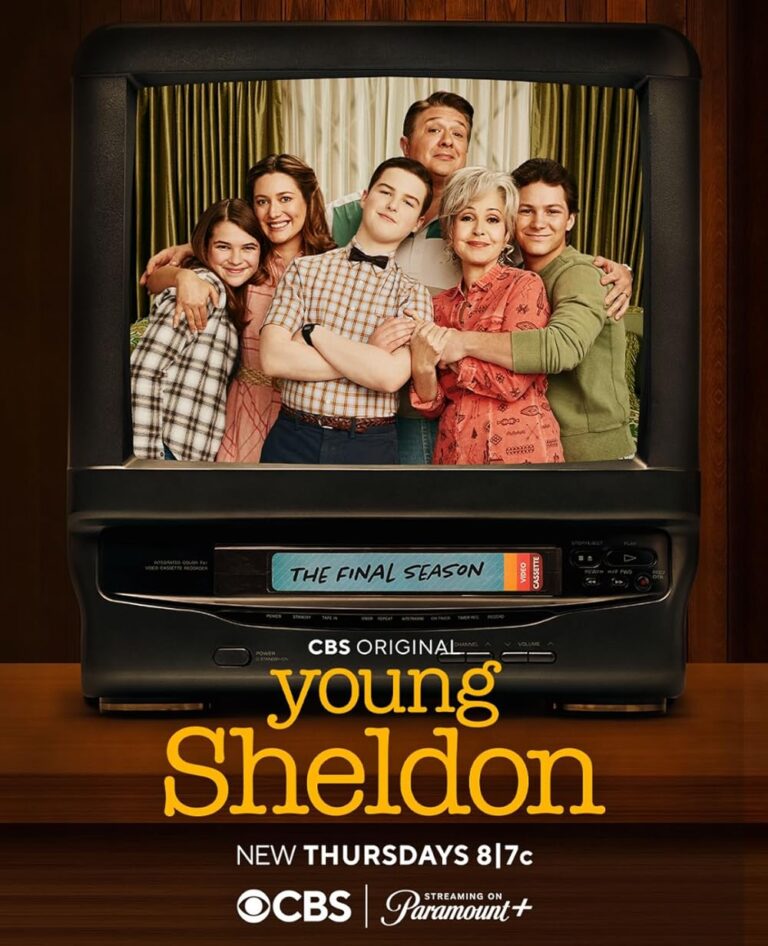Joan Christian Review

There’s a certain magnetic pull when you watch Sophie Turner take on the role of Joan Hannington in the British drama Joan. The tension she creates with Frank Dillane feels like something you can almost reach out and touch, and yet, beneath the crackling chemistry, there’s this ever-present thread of mistrust. They dance around each other, caught in a web of attraction, suspicion, and whatever lies beneath their complicated relationship. It’s captivating. Turner’s portrayal of Joan is the beating heart of this series. She’s fierce, magnetic, and completely unapologetic. But as you dive deeper into her story, you can’t help but feel there’s something missing, something the show glosses over in its quest to keep things zippy and shiny.
There’s no denying that Joan leans heavily into its British roots. The storytelling is tight, no fluff, no extraneous characters cluttering up the plot. It’s efficient, sleek, and in many ways, the antithesis of the bloated storytelling we’ve come to expect from American TV. And yet, while this no-nonsense approach works for the pacing, it often feels like the emotional core of the story gets lost. There are glimpses, hints of Joan’s deeper struggles, but it’s as though the show doesn’t quite trust the audience to handle the full weight of her transformation. It’s all surface tension with little exploration beneath.
Chemistry That Captivates but Stays Skin Deep
Let’s start with the obvious: Turner and Dillane are fantastic together. Their chemistry is the stuff of great drama—taut, electric, and just a little bit dangerous. You can’t look away when they’re on screen. It’s the kind of relationship that draws you in, makes you curious, even if you don’t quite trust where it’s headed. The problem isn’t in the performances. Far from it. Turner is especially magnetic, and she handles the role of Joan with the kind of grace and grit that makes you root for her, even when you’re not sure you should.
But, from a Christian perspective, it’s hard not to feel conflicted. Here’s a woman who, after enduring abuse and hardship, steps into a life of crime, wielding her newfound power with precision and determination. Sure, we understand her motivations—survival, protection, empowerment—but the ease with which she embraces this darker path makes you pause. Should we be celebrating her cunning, her ability to manipulate and deceive her way to the top? Or should we be mourning the moral compromises that seem to come all too easily?
Empowerment in storytelling is a tricky thing. On the one hand, you want to see characters, especially women, take control of their lives, rise above their circumstances, and refuse to be victims. But what happens when that empowerment is rooted in sin? Joan’s journey is a complicated one, and while it’s easy to get swept up in her fierceness, there’s this lingering question of whether the ends justify the means. And as Christians, we’re often reminded that no amount of worldly success can truly fill the void left by a broken moral compass.
British Efficiency: A Blessing and a Curse
One thing Joan does well is avoid the trap of overstuffing its narrative. It’s clean, nimble, and focused. There’s no unnecessary subplot dragging things down, no characters hanging around without a purpose. In a world where many shows seem to revel in overcomplication, Joan keeps things refreshingly simple. And yet, this precision comes at a cost. For all its efficiency, the show often feels like it’s skimming the surface of something much deeper.
The story of Joan Hannington is, by all accounts, a difficult one. A woman who transitions from a battered girlfriend to a powerful crime boss doesn’t get there without some serious struggles, both internal and external. But the show moves so quickly through her evolution that it’s hard to feel the weight of those struggles. The hardships are hinted at but never fully explored. It’s as if the show is afraid that if it lingers too long on Joan’s pain, it will lose its momentum.
And that’s where things get frustrating. As Christians, we understand that suffering and hardship are often the moments where God works the most powerfully. It’s in the brokenness that we find grace, in the struggles that we see redemption. But Joan doesn’t seem interested in exploring those deeper themes. Instead, it glosses over the tough parts in favor of keeping the story moving at a brisk pace. And while that makes for an engaging watch, it also leaves you feeling like something is missing.
Empowerment or Emptiness?
There’s no denying that Joan is a story about empowerment. But what kind of empowerment are we talking about here? For Joan, empowerment means taking control of her life by any means necessary. She moves from victim to victor, but the path she takes is littered with deception, theft, and manipulation. And while it’s easy to root for her as she escapes her abusive past, there’s an underlying emptiness to her triumphs.
Joan’s ascent into the world of crime is quick and seamless. She moves from being a woman desperate to protect her daughter to a ruthless criminal mastermind with very little internal conflict. And that’s where the show misses an opportunity to dig deeper. We don’t see Joan wrestle with the moral implications of her choices. We don’t see her struggle with the toll her actions take on her soul. It’s all very matter-of-fact, as though we’re meant to accept her criminality as just another facet of her empowerment.
But as Christians, we know that true empowerment doesn’t come from stepping on others to get ahead. It doesn’t come from compromising our values or forsaking our integrity. Joan’s story is one of survival, yes, but it’s also one of moral decay. And while the show may celebrate her rise to power, there’s an undeniable sadness in watching someone lose their way in pursuit of control.
The 80s Vibe: Style Over Substance?
There’s no denying that Joan is a visually stunning show. The 1980s setting is nostalgic and vibrant, with its bold fashion choices, pulsating soundtrack, and neon-lit streets. The wardrobe alone is enough to make you wish you could step back in time and raid Joan’s closet. But for all its style, there’s a sense that the show is using its aesthetic to distract from its deeper flaws.
The 80s vibe is fun, but it sometimes feels like a smokescreen, a way to keep viewers entertained without asking them to think too hard about what’s really going on. There’s a hollowness beneath the surface, a lack of substance that becomes more apparent the longer you watch. The show seems more concerned with looking good than with digging into the moral complexity of Joan’s choices.
Turner’s Talent Outshines the Story
At the end of the day, Joan is a showcase for Sophie Turner’s talent. She’s fantastic in the role, bringing depth and nuance to a character who could easily have come across as one-dimensional. Turner’s portrayal of Joan is both fierce and vulnerable, and she carries the series on her shoulders. You can’t help but be captivated by her performance, even when the story itself falls short.
But while Turner shines, the series doesn’t quite live up to her performance. There’s a frustrating lack of exploration when it comes to Joan’s inner life. We see her transform, but we don’t really understand why. We’re left with more questions than answers, and it’s hard not to wonder what might have been if the show had been willing to dig a little deeper.
Final Thoughts: Complexity Without Redemption
Joan is a series that captivates but ultimately leaves you feeling hollow. It’s engaging, stylish, and well-acted, but for Christian viewers, it’s hard to shake the feeling that something is missing. There’s no real exploration of the moral cost of Joan’s actions, no redemption arc, no deeper reflection on what it means to gain the world but lose your soul.
In the end, Joan is a story about a woman who takes control of her life, but in doing so, she sacrifices something far more valuable. It’s an entertaining watch, but it’s also a reminder that true power doesn’t come from worldly success or criminal triumphs. True power comes from walking in integrity, even when the world is against you.
For that reason, I’d give Joan a 6.5 out of 10. There’s a lot to admire here, but it’s hard to recommend fully without a more meaningful exploration of the consequences of Joan’s choices.





